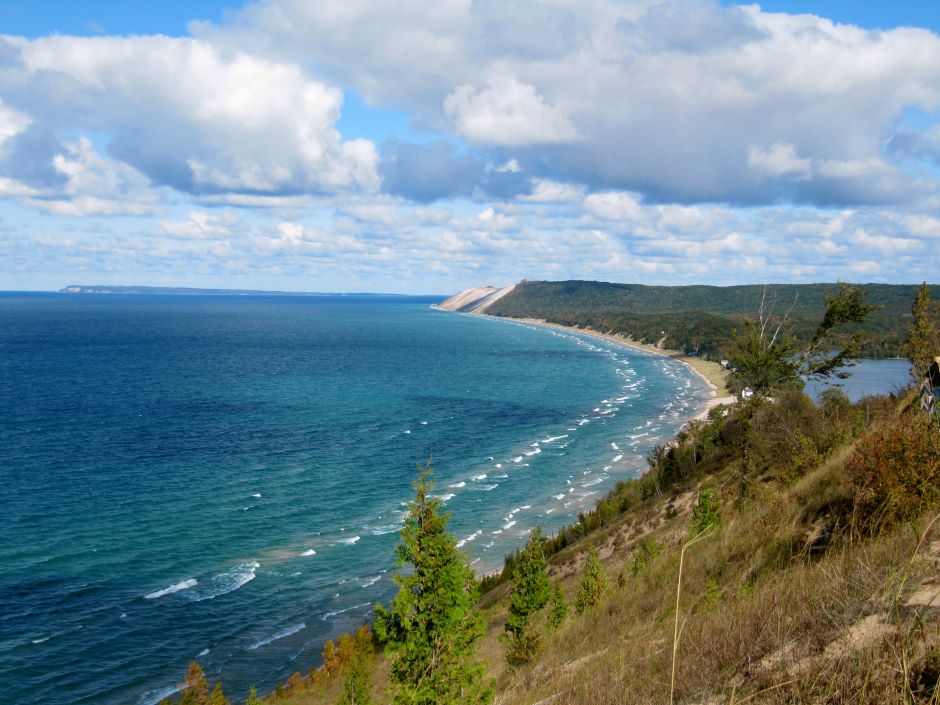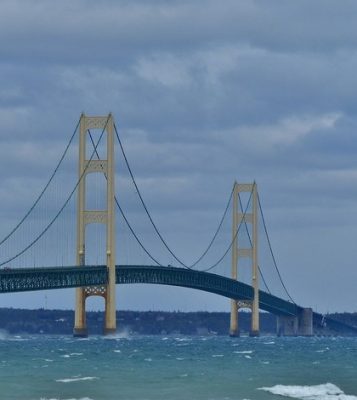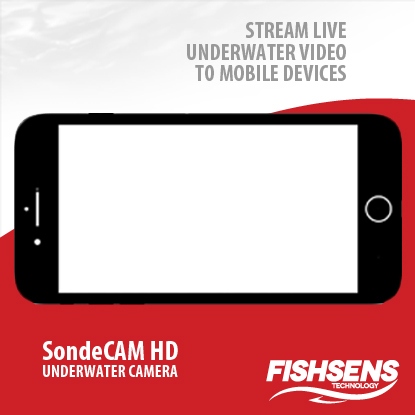Proposed Net-Pen Aquaculture Facilities in Michigan
 Empire Bluffs Trail view of Sleeping Bear Dunes (Credit: Rachel Kramer CC BY 2.0)
Empire Bluffs Trail view of Sleeping Bear Dunes (Credit: Rachel Kramer CC BY 2.0)In 2014, a panel of scientists, economists and other experts recommended a measured approach to Great Lakes fish farming. The proposal was made alongside other similar presentations, which called for the initiation of commercial aquaculture facilities to operate out of the Michigan waters of the Great Lakes. The type of fish farming proposed is called “net-pen aquaculture,” which allows for passage between the enclosures and the surrounding environment.
Concerns over Net-Pen Aquaculture in Michigan
The proposal suggested that the construction of these “facilities could lead to up to 17 direct jobs, 27 indirect jobs and a total output of $10.3 million,” according to Aquaculture North America. A staggeringly small number compared to a 2014 Michigan Sea Grant Report that envisioned a billion-dollar aquaculture industry, as reported by The Detroit News.
“There are a lot of concerns that would have to be addressed for any type of net-pen facility to move forward,” said Tammy Newcombe, senior water policy adviser for the Michigan Department of Natural Resources, to The Detroit News.
Michigan State University reports that many of these concerns focus on the large generation of fish waste as well as concerns over potential escapes or breaches in the netting of the fish farm chambers. There is also the potential for disease transmission from native to farmed, or vice versa, fish due to the open design of net-pen aquaculture facilities. Excessive fish waste could lead to an imbalance of nutrients in the lakes and deteriorate water quality. Further, it could lead to increased algal blooms and increased aquatic plant growth–including invasive species.
Hearing the concerns, members of the panel recommended that the state might undertake some pilot projects to test the safety and efficiency of the facilities. These pilot projects could be closely monitored and would include setting up strict requirements for net location, waste control and disease prevention. The pilot projects would give facility managers and the state the time to work out any kinks before larger-scale operations began.
“If one thing goes wrong, it could sacrifice the quality of the Great Lakes for years to come,” said Sean Hammond, deputy policy director of the council, as reported by The Detroit News.

The Mackinac Bridge divides Lake Michigan and Lake Huron. (Public Domain)
Conclusion
Two years after the 2014 proposals were made, Michigan rejected the proposals to construct net-pen aquaculture facilities in the Michigan waters of the Great Lakes. The Michigan departments of Agriculture and Rural Development, Natural Resources, and Environmental Quality worked together to compile data and research into various reviews on the proposed ideas. The Michigan Department of Agricultural and Rural Development reports that the state ultimately published five reviews: “one science-based report exploring fish health and water quality; one report looking at applicable regulations, rules, jurisdictions and agreements; and three separate evaluations of the potential economic impact of commercial net-pen aquaculture in the Great Lakes.”
The review of regulations noted that the construction of net-pen aquaculture facilities could lead to a host of legal issues—in part because of the risks and long-term damages that could result from some type of mishap. Furthermore, the state agencies shared that commercial net pens could not legally operate in Great Lake waters. The reports suggest that the legality of such plans would fall under the jurisdiction of the Public Trust Doctrine. This doctrine requires that certain natural and cultural resources stay preserved for public use. Since these fisheries would be privately owned and commercially operated, the facilities could be interpreted as a violation of the doctrine.



Pingback: FishSens Magazine | Michigan's Aquaculture Operation in the Great Lakes - FishSens Magazine